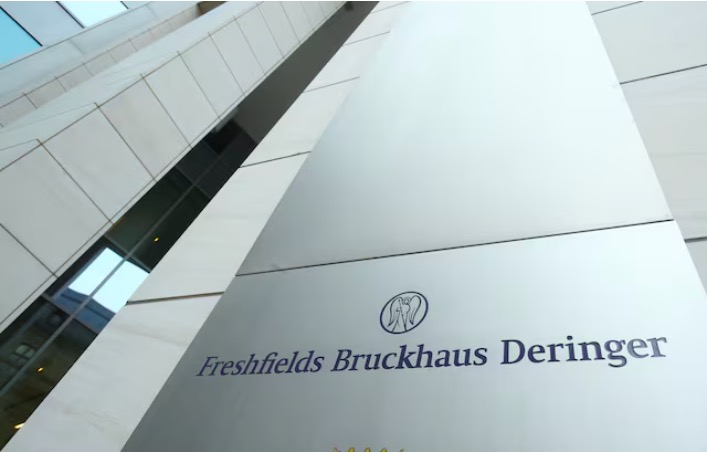AnJie Broad: The Path to Breakthrough After the Merger
In January 2022, AnJie Law Firm and Broad & Bright Law Firm officially merged to form AnJie Broad Law…
In January 2022, AnJie Law Firm and Broad & Bright Law Firm officially merged to form AnJie Broad Law Firm, marking one of the largest law firm mergers in China’s legal service market in the past decade.
Drivers Behind the Merger
The merger had been on the agenda for both firms for quite some time, but it was an unexpected trip to Shenzhen that brought them together. Broad & Bright, established in 2004, had considered merging with seven potential firms over the past decade. Meanwhile, AnJie, founded in 2012, experienced rapid growth but faced a potential plateau. Since 2018, AnJie had been exploring mergers with five different firms.
Several factors drove this long-anticipated merger:
Firstly, regional strengths played a significant role. AnJie Law Firm had built its reputation on professional excellence and organic growth, whereas Broad & Bright excelled in international business. Both firms aimed to expand their scale and enhance market competitiveness, aspiring to become one of China’s leading law firms and gradually close the gap with top international firms.
Secondly, the firms’ business areas were highly complementary. AnJie had strengths in insurance, antitrust, labor, and intellectual property, while Broad & Bright excelled in cross-border mergers and acquisitions, the Hong Kong capital market, and emerging industries such as digital entertainment, gaming, and fintech. The new AnJie Broad Law Firm brings together expertise in numerous practice areas, including antitrust, insurance, life sciences, internet technology, labor, intellectual property, energy, dispute resolution, mergers and acquisitions, data protection, maritime law, banking, and asset management. The firm aims to develop its digital economy business amid China’s industrial upgrade and clearer internet regulatory framework.
Geographical synergy also benefits the merger. AnJie Broad now has offices in Beijing, Shanghai, Shenzhen, Guangzhou, Haikou, and Nanjing, covering China’s major economic regions to meet local clients’ legal needs. Broad & Bright’s Guangzhou office and planned Shenzhen office create synergy with AnJie’s Shenzhen office, aiding the strategic layout in the Greater Bay Area.
High-quality clients require comprehensive services. If a law firm’s practice areas are limited, it cannot meet client needs. Post-merger, the firm can integrate various resources organically, filling gaps and enabling the provision of one-stop professional legal services to meet all client needs.
Changes After the Merger
Merging law firms, especially ones that have reached a certain scale, is no easy task. There have been many failed mergers due to staff loss, management, and cultural conflicts. Like a marriage, merging is simpler when younger and less encumbered by wealth and baggage; it becomes more challenging with age.
The new firm adopted AnJie’s “semi-corporate, large-team system” to ensure effective decision-making. For business integration, resources among partners are streamlined, requiring each partner to understand others’ businesses and strengths for efficient resource utilization.
To maintain service quality while scaling up, the new firm will adopt an “active yet cautious” approach when opening branches and recruiting partners and teams, raising the bar for equity partners to prevent internal chaos and resource waste.
To avoid common issues in Chinese law firms related to development planning, governance structure, and execution, Jian Hao envisions changes in three areas: (1) developing an efficient and fair management mechanism; (2) balancing legal skills and industry knowledge; (3) creating a new, motivating, and fulfilling work environment.
Specifically, partners are collaborators and promoters rather than competitors; lawyers and assistants share growth experiences and support each other as a team; the relationship between the firm and partners transcends mere commissions and management to align personal and firm development perfectly. Everyone, from partners and lawyers to secretaries and support staff, shares in the firm’s growth benefits.
The firm continues AnJie’s management and profit-sharing model, balancing corporate and partnership systems: encouraging partners to generate revenue, with the major part of earnings managed by partners, and accumulating public funds for firm development.
Moreover, to maintain service quality while expanding, the firm adheres to an “active yet cautious” principle when opening branches or recruiting partners and teams, raising the threshold for equity partners.
AnJie Broad’s Path to Breakthrough
AnJie Broad set an ambitious goal: within five years, to match the strength, influence, and service quality of leading firms and rank among China’s top five law firms.
For a relatively young firm to join the leading ranks is a formidable challenge. Globally, it is rare; in the past thirty years, no UK firm has broken into the top six, and only two US firms have entered the top twenty. In China, the legal market has been dominated by a few leading firms for the past twenty years, making it exceptionally challenging for newer firms to break through.
In just two years, AnJie Broad has made significant strides. In April 2024, the renowned legal rating agency LEGALBAND ranked AnJie Broad in the top tier for 16 practice areas, including antitrust and competition law, cybersecurity and data compliance, labor law, insurance, technology, media, and telecommunications. AnJie Broad is well on its way to achieving its goals.








